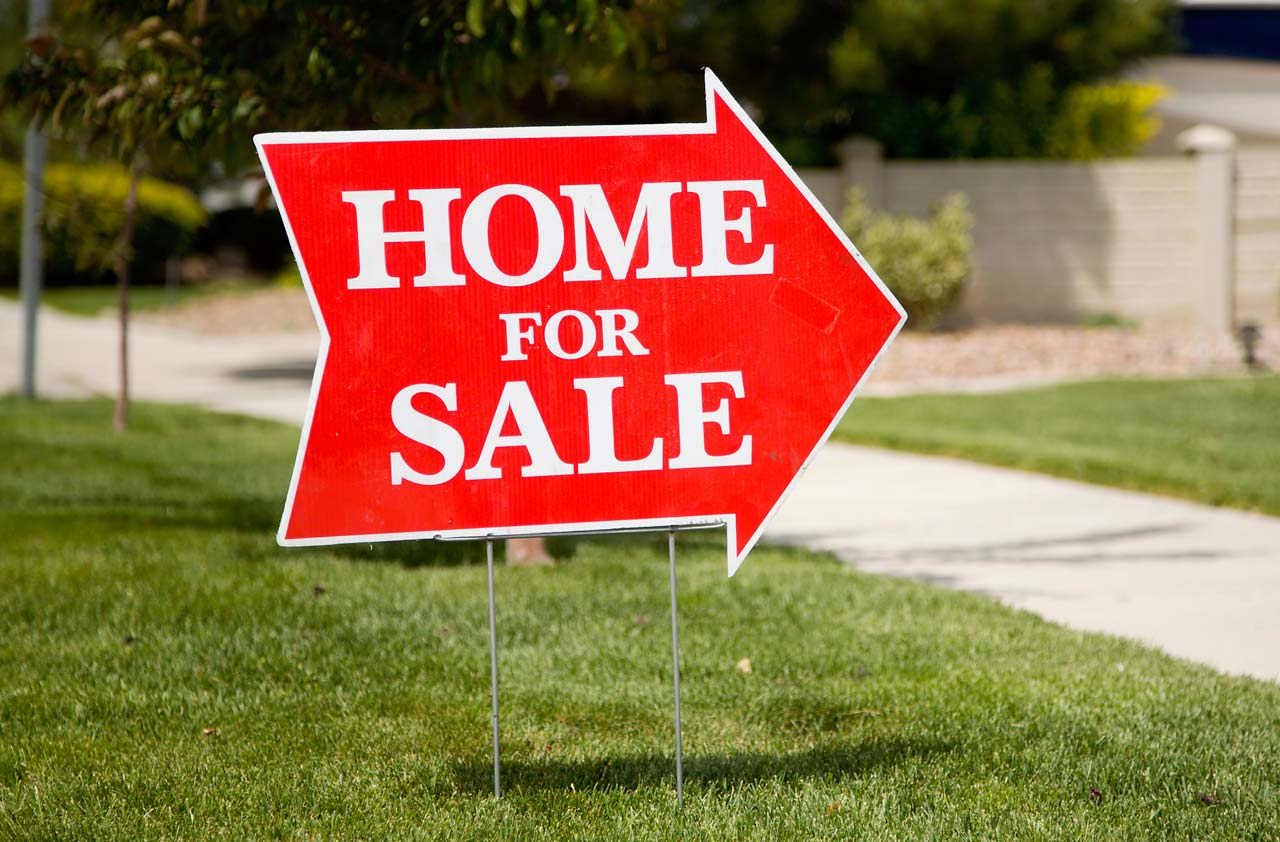Should You Buy or Rent Your Home?
Figuring out the answers to the four questions below will guide you to the right answer to the big question above.

Profit and prosper with the best of Kiplinger's advice on investing, taxes, retirement, personal finance and much more. Delivered daily. Enter your email in the box and click Sign Me Up.
You are now subscribed
Your newsletter sign-up was successful
Want to add more newsletters?

Delivered daily
Kiplinger Today
Profit and prosper with the best of Kiplinger's advice on investing, taxes, retirement, personal finance and much more delivered daily. Smart money moves start here.

Sent five days a week
Kiplinger A Step Ahead
Get practical help to make better financial decisions in your everyday life, from spending to savings on top deals.

Delivered daily
Kiplinger Closing Bell
Get today's biggest financial and investing headlines delivered to your inbox every day the U.S. stock market is open.

Sent twice a week
Kiplinger Adviser Intel
Financial pros across the country share best practices and fresh tactics to preserve and grow your wealth.

Delivered weekly
Kiplinger Tax Tips
Trim your federal and state tax bills with practical tax-planning and tax-cutting strategies.

Sent twice a week
Kiplinger Retirement Tips
Your twice-a-week guide to planning and enjoying a financially secure and richly rewarding retirement

Sent bimonthly.
Kiplinger Adviser Angle
Insights for advisers, wealth managers and other financial professionals.

Sent twice a week
Kiplinger Investing Weekly
Your twice-a-week roundup of promising stocks, funds, companies and industries you should consider, ones you should avoid, and why.

Sent weekly for six weeks
Kiplinger Invest for Retirement
Your step-by-step six-part series on how to invest for retirement, from devising a successful strategy to exactly which investments to choose.
Are you tempted to buy a house? Years of price declines have made buying a home more affordable than renting in all but two of the 100 largest metro areas, according to real estate Web site Trulia. (The two renter-centric cities? Honolulu and San Francisco.) Plus, mortgage rates are still appealingly low.
But does that mean you should buy? Before you make the leap into a lifetime of mortgage payments and home-maintenance routines, here are a few questions to help you decide whether you should rent or buy. Our answers led one of us down the path toward homeownership, with the other steadfastly strolling the route of renting. Which direction will you take?
1. Where do you live?
The cost of buying versus renting varies greatly from city to city. A smart way to weigh the two options is to divide the average asking price for a home in your city by the typical annual rent for a comparable home. This will yield a price-to-rent ratio. For example, if the average sales price is $200,000 and average rent is $1,500 per month -- that’s $18,000 per year, for the math-challenged -- then the ratio would be 11.1. In general, a price-to-rent ratio below 15 benefits buyers; above 20 rewards renters. Ratios between 15 and 20 can go either way, depending on a number of factors, from taxes to appreciation potential. To find home values, try our home-price tool or go to www.zillow.com. For average rents, visit home-price tool or go to rentometer.com.
From just $107.88 $24.99 for Kiplinger Personal Finance
Become a smarter, better informed investor. Subscribe from just $107.88 $24.99, plus get up to 4 Special Issues

Sign up for Kiplinger’s Free Newsletters
Profit and prosper with the best of expert advice on investing, taxes, retirement, personal finance and more - straight to your e-mail.
Profit and prosper with the best of expert advice - straight to your e-mail.

Andrea says: Numbers don’t lie. Here in the Washington, D.C., metro area, the price-to-rent ratio is a buyer-friendly 11.2, according to Trulia’s Rent vs. Buy index. And I know I’m basically paying in rent what several of my friends who own condos in this area are spending monthly on their mortgages. But they're able to build equity and qualify for tax write-offs exclusive to homeowners, while I simply kiss my rent dollars goodbye forever.

Susannah says: Sure, my astronomical D.C. rent disappears into my landlord’s pocket each month. But that price buys me the freedom to move to another city with a few weeks’ notice, to live with any combination of roommates and to outsource maintenance work to my handy super. I’m young and restless, and not recouping my rent money isn’t a big concern.
2. How long will you stay put?
Remember that home buying is a long-term commitment. If you're not planning to stay in the home for at least five to seven years, think twice. The average origination and title fees on a $200,000 mortgage totaled $4,070 last year, according to BankrateBankrate. “Those costs aren’t worth it unless you’re going to stay in that home long enough to spread them out,” says Jed Kolko, of Trulia.
So ask yourself, in the next five years, might you need to relocate for, say, grad school, a new job, your future spouse or hypothetical children? If so, renting will allow you the flexibility to pick up and move on short notice.
Andrea says: I don’t see myself leaving D.C. within the next five or so years. My family and close friends are all here, and career-wise, a number of reputable companies are based in this area, if and when the time comes for me to consider pursuing other job opportunities.
Susannah says: D.C. rocks my socks, but my job is the only thing really keeping me here. My family is back in the Midwest. Many of my closest friends live in New York or Chicago. I love Kiplinger, but journalism’s a fickle industry with lots of turnover. When it comes time to consider a career move, I don’t want to be tethered to local options.
3. What is your monthly budget?
As a homeowner, you'll have a lot of big new expenses to cover with your same old budget: mortgage payments, utility bills and costs for standard upkeep. Plus, you should consider beefing up your emergency fund for less-routine maintenance issues, such as a fallen tree branch or a burst pipe.
All of those new costs can be pretty intimidating. But if you've got room in your monthly budget, home buying makes sense for the long haul. You'll be building equity, and your housing costs won't be exposed to inflation like they are with renting, says Eric Tyson, co-author of Home Buying for Dummies.
Andrea says: I’m not so worried about fitting homeownership costs into my current budget. However, other factors, such as the shaky economy and job market (especially for journalists), do worry me. I’ve watched many friends and colleagues who were homeowners get laid off over the past few years. It’s a scary thing to be jobless with a mortgage and without enough savings to last you until a new gig pans out. So I'm not sure my budget can withstand owning a home in that kind of problem situation.
Susannah says: I have so many other financial obligations as a young professional in D.C. I’m paying off student loans, building my retirement account and growing an emergency fund. I don't have room in my budget right now for homeownership costs.
4. How much do you have saved?
The sexiest housing market in America offers nothing if you don’t have savings. Putting down 20% of the sales price is a common requirement. That number may seem steep, but it will help you qualify for the best loan terms, and it eliminates the additional cost of private mortgage insurance, or PMI, says Tyson. (PMI is typically required when a buyer makes a down payment of less than 20%, according to HSH.com. It protects the mortgage lender in the event of a default on the loan.)
If you have a ways to go before reaching that 20% mark, weigh saving for a down payment against your other financial obligations. “Saving for retirement should be the priority,” says Andy Tilp, a financial planner with Trillium Valley Financial Planning. Once you retire, you can’t “eat your house,” he says, meaning that it’s difficult to access the equity locked up within the walls of your home. Bob Morrison, a financial planner with Downing Street Wealth Management, agrees that saving for a down payment should be a lower priority. “Pay off student loans and credit card debt first," he says. "Those 7% to 8% interest rates cost so much.”
Andrea says: A few months ago, I started my quest for homeownership with the goal of being out of my apartment by the time the lease expires this summer. However, I’m on the fence (again), largely due to my wanting to spend the rest of this year saving up enough money to make a 20% down payment. Right now, I have a little over half that amount. The idea of paying PMI, when I don’t have to, just doesn’t seem like smart spending to me.
Susannah says: See above. Saving for a 20% down payment isn’t on my to-do list right now.
Follow Andrea, Susannah and the whole Starting Out Kiplinger team on Twitter.
Profit and prosper with the best of Kiplinger's advice on investing, taxes, retirement, personal finance and much more. Delivered daily. Enter your email in the box and click Sign Me Up.

Browne Taylor joined Kiplinger in 2011 and was a channel editor for Kiplinger.com covering living and family finance topics. She previously worked at the Washington Post as a Web producer in the Style section and prior to that covered the Jobs, Cars and Real Estate sections. She earned a BA in journalism from Howard University in Washington, D.C. She is Director of Member Services, at the National Association of Home Builders.
-
 Quiz: Do You Know How to Avoid the "Medigap Trap?"
Quiz: Do You Know How to Avoid the "Medigap Trap?"Quiz Test your basic knowledge of the "Medigap Trap" in our quick quiz.
-
 5 Top Tax-Efficient Mutual Funds for Smarter Investing
5 Top Tax-Efficient Mutual Funds for Smarter InvestingMutual funds are many things, but "tax-friendly" usually isn't one of them. These are the exceptions.
-
 AI Sparks Existential Crisis for Software Stocks
AI Sparks Existential Crisis for Software StocksThe Kiplinger Letter Fears that SaaS subscription software could be rendered obsolete by artificial intelligence make investors jittery.
-
 Four Smart Steps To Take Before Buying Your First Home
Four Smart Steps To Take Before Buying Your First Homehome Buying your first home can be daunting. Here are four things you need to do years before you start house-hunting to prepare financially for the biggest purchase of your life.
-
 Five Big Steps to Buying Your First Home
Five Big Steps to Buying Your First Homereal estate We told you how to prepare years ahead of your first home purchase. Now here is how to close the deal.
-
 5 Hidden Costs That Surprise First-Time Home Buyers
5 Hidden Costs That Surprise First-Time Home Buyershome Make sure your budget is big enough to handle these unexpected expenses.
-
 Yes, You Can Live Rent-Free
Yes, You Can Live Rent-Freeplaces to live Instead of forking over a big slice of your paycheck to housing costs, consider exchanging your services for a place to stay.
-
 Save for a House
Save for a Housereal estate How much you’ll need and what to expect when you apply for a mortgage.
-
 Best Cities for Young Home Buyers
Best Cities for Young Home Buyersreal estate Homeownership may seem out of your reach, but in these 10 locations, it may be more attainable than you think.
-
Save Money on Moving
Smart Buying Without careful planning, you can waste a lot of time and money relocating.
-
Seven Sins of First-Time Renters
Smart Buying Renting your first place? Avoid these costly mistakes.